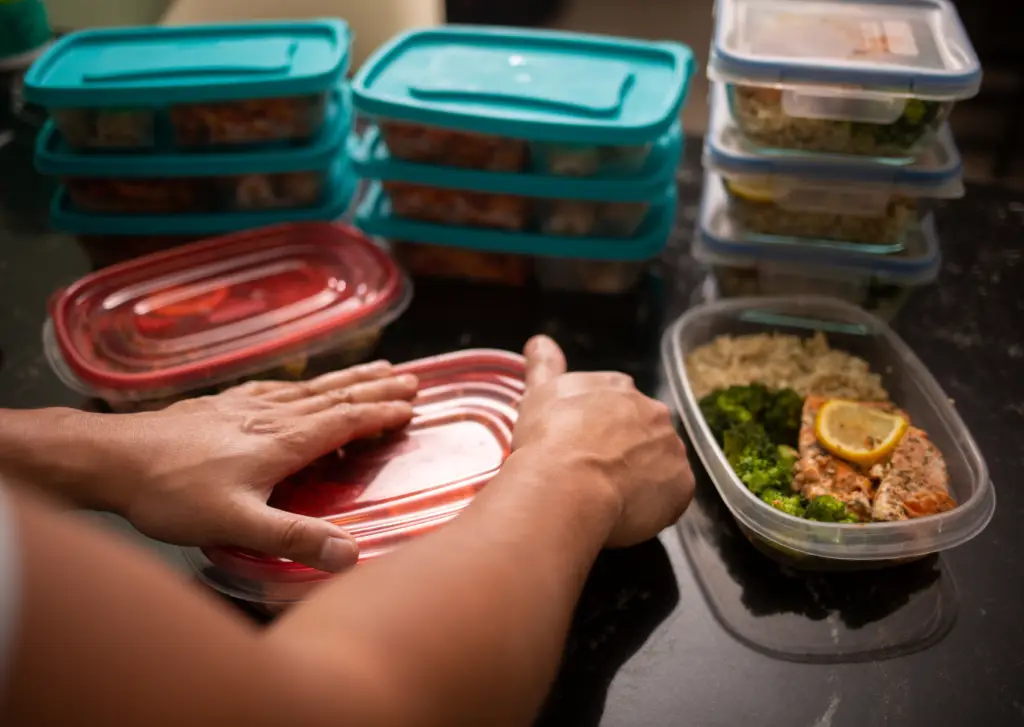Whenever I read a finance blog, I get the same advice: save more, spend less. It’s solid advice; I’ve written my share of those blogs. But today, let’s focus on the practical stuff—and find ways to save money on groceries in the UK without feeling deprived.
Housing and transportation make up most of our budgets—cutting those costs is hard. But groceries? That’s where we can trim the fat. If your food bill keeps creeping up, you’re not alone. Rising prices are squeezing UK families. The good news? Small, smart changes can lead to big savings. Here are some grocery hacks to help you save hundreds—maybe thousands—this year.
Before the Bargains: My Thoughts
Health Is Wealth
Saving money shouldn’t mean sacrificing health. Most supermarkets offer a range: budget, mid-range, and premium. For example, Sainsbury’s has Basics, an unnamed mid-range, and “Taste the Difference.” When I was penny-pinching, I tested the Basics range. Some were fine; others, not so much (Basics sausages, with their high-fat content, were a no-go for my family). The trick is finding a balance between healthy and affordable. The good news? Cooking at home is always cheaper—and healthier—than takeaways, even with premium ingredients.
The 17 Money Saving Tips
1. Learn to Cook

Cooking is a life skill that saves money and boosts your health. My daughter often calls me out for assuming everyone can cook, so if you can’t (no shame), start learning. YouTube has tutorials for everything. Make it fun—try a new recipe each month. You’ll save thousands, eat better and add a valuable life skill.
2. Check Your Cupboards
Before you head to the shops, take stock of what you already have. You might only need a few ingredients to create a great meal instead of buying a whole new list. Planning around what’s on hand reduces waste and prevents double-buying.
3. Meal Plan Like a Pro
We are all super busy. Planning meals saves money, time, and stress. List your family favourites, then plan weekly. It means fewer last-minute takeaways and impulse buys and less stress over dinner decisions.
4. Write (and stick to) a List
Once you’ve planned your meals, create your shopping list gradually throughout the week—don’t wait until you’re rushing out. This way, you’ll remember everything and avoid overspending on extras. I keep a dedicated notebook just for this. It gets filled, as I remember, even if my next shopping trip is ten days away.
5. Look Low to Spend Less
Supermarkets are clever. They place pricier items at eye level because that’s where you’re most likely to look. Cheaper, own-brand options? They’re usually tucked away on the lower shelves. This isn’t random—it’s behavioural science at work. Retailers know that making bargains harder to reach nudges us toward the more expensive options. But now you’re in on the secret. Take a moment, bend down, and grab the savings. Your wallet will thank you.
6. Shop Own Brand
Nigerian kids grew up on Weetabix, which is a breakfast staple. Even now, at my big age, I still love it. But here’s the thing: I can’t remember the last time I bought the actual Weetabix brand. I switched to Sainsbury’s version (always on the lowest shelf), and it’s just as good. Don’t sleep on shop brands—plenty of hidden gems are waiting to be discovered. Check it out next time you go shopping. Where are the shop brands’ stock?
7. Go Solo
Leave the kids at home to avoid the “Can I have this?” chorus and the guilt trip that follows. No one enjoys being the “mean mama,” but shopping with kids often leads to overspending. Flying solo keeps your trolley—and your budget—under control.
8. Love Yellow Stickers
Yellow or red stickers on products mean they’ve been reduced. To get the good deals, timing is everything. Shopping in the evening can save you loads, especially when you hit the reduced section where items nearing their use-by dates get marked down. But here’s the golden rule: only buy what you need or plan to get. A deal isn’t a deal if it wasn’t on your list. If it’s reduced and useful, grab it. Freeze what you can, and make sure to use up anything else before it goes off. Smart savings, no waste. Check out Morrisons’ partnership with the Too Good To Go app for even more savings. They offer “surprise bags” of discounted food nearing its sell-by date at over 900 Morrisons Daily stores. It’s a great way to save money and reduce food waste—just reserve a bag via the app and collect it during your time slot. Smart savings, no waste! Cheaper cuts of meat, like chicken thighs or stewing beef, taste just as good. Swapping premium cuts for budget ones can also save a lot. From Sainsbury’s Nectar to Tesco Clubcard and Lidl Plus, loyalty cards unlock discounts and cashback. They’re free to sign up for, so even if the shop isn’t nearby, register when you’re in the area or online. I don’t live near a Lidl or Aldi, but when passing one, I stock up on planned essentials—they offer excellent value. As for travelling to cheaper shops, only travel if the savings outweigh the travel costs. Time is just as valuable, so don’t spend hours for a small saving. Bulk-buying at places like Costco is great for larger families, especially if you shop less often—monthly or quarterly trips save time and money. Tesco regularly sends me coupons in the post, and they can be a great way to save—if used wisely. Check the deals, and if they’re for items you already buy, go ahead and use them. But steer clear of “bargains” for things you don’t need. Spending on unnecessary items defeats the whole point of saving money. I used to shop last minute every evening after work and school pick-ups. Tired and stressed, with rumbling tummies, we’d end up with a trolley full of snacks. Now, I plan my shopping for quieter times, like early mornings or late evenings, preferably on a day off. It’s less stressful, and I stick to my list. A quick snack before shopping also helps keep hunger—and impulse buys—in check. Stay focused, and save money. Sales are perfect for stocking up on staples like detergent, coffee, or tea—things you use regularly that don’t spoil. But don’t let the excitement of a bargain blow your budget. Be balanced: if you’ve got spare cash and storage space, and it won’t derail your savings, go for it. If stocking up means skipping your usual savings, it’s better to pass. A deal is only a deal when it truly fits your finances. There are cashback apps to save money on groceries. UK apps like Shopmium, CheckoutSmart, Swagbucks, and GreenJinn (my favourite for healthier options) help you save on groceries. It’s simple: shop as usual, snap a photo of your receipt and claim cashback on qualifying items. It’s free money for doing what you’re already doing—why not? Got leftovers from last week? Don’t let them go to waste—freeze them before they spoil! The key is to freeze smart. Use smaller containers to portion leftovers into single servings. For instance, with leftover jollof rice, skip dumping everything into one big tub. Instead, divide it into smaller bowls, add some protein, and freeze. When it’s time to eat, you can defrost exactly what you need—one portion per person. It’s simpler, tidier, and much more appetising. Plus, it ensures no food gets wasted, and your budget stretches further. If you use it correctly, your freezer can be a powerhouse for saving money. Organise the space so you can store food properly and, most importantly, use it. Too often, leftovers get tossed in haphazardly, forgotten, or look unappetising. The result? Wasted food and wasted money. Store food in an appealing way—think of how frozen meals are packaged. Use trays (like larger ice cube trays) to freeze individual portions, then transfer them to freezer bags. This way, you can grab exactly what you need without defrosting more than necessary. An organised freezer is a simple investment of time that can save you thousands a year. Make it work for you! If you’re a parent on a low income, you could receive up to £442 annually in Healthy Start vouchers to spend at supermarkets. Additionally, many councils provide supermarket vouchers through the Household Support Fund. Saving money doesn’t have to mean sacrificing your favourite meals. With these tips, you can take control of your grocery spending and free up cash for other goals—whether it’s having money saved or treating yourself to something nice. Keep an eye out for more practical tips in our Kickstart 2025 series. Let’s make this your best financial year yet! Sign up for my newsletter below and get practical advice delivered straight to your inbox! Plus, follow me on Instagram for my latest tips and so much more. Let’s make saving money simple and fun9. Swap Cuts and Brands
10. Get ALL the Loyalty Cards

11. Use Your Coupons
12. Avoid Shopping Hungry, Stressed, or Tired
13. Bulk Buying During Sales
14. Get Money back
15. Love Your Leftovers

16. Freezer Management
17. Healthy Start vouchers
Kickstart 2025 with Smarter Grocery Shopping
Ready for More Money-Saving Tips?





